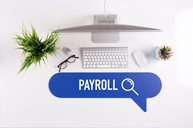Tax Claim Rules and Deductions for Fly-In and Fly-Out Workers
If you're a Fly-In Fly-Out (FIFO) worker, there are plenty of special tax rules and deductions that you need to be aware of. Here's a summary of the key points.
Working remotely - zone tax offset
You may be eligible for a 'zone tax offset' if you live in a remote or isolated area of Australia (but not an offshore oil or gas rig) for at least half the tax year. These offsets are designed to compensate individuals as a result of the isolation, uncongenial climate and high living costs associated with living in remote locations.
Since 1 July 2015, fly-in fly-out workers and drive-in drive-out workers are excluded from the zone tax offset where their normal residence is not within a zone.
To be eligible for the zone tax offset, a taxpayer must reside in a specified remote area for more than 183 days in an income year.
Those FIFO workers whose normal residence is in one zone but who work in a different zone will retain the zone tax offset entitlement associated with their normal place of residence. Find your zone.
Example 1
Jack is a mining engineer who lives in Melbourne. He flies to Kalgoorlie for twelve day shifts at a mine and then travels back to Melbourne for his days off (which vary between four and eight days in a row). As Jack does not have his usual place of residence within a prescribed Zone, even though he is in Kalgoorlie for 183 days or more, Jack is unable to claim the zone tax offset.
Example - Jonte
Jonte is an engineer who lives in Darwin (located within Zone A) and travels to Kununurra in Western Australia (located in a Zone A special area) where he is employed in the mining industry. In his usual shift, Jonte drives to Kununurra, works 14 days at the mine and drives back to Darwin where he remains for 16 days.
Jonte is still able to claim zone tax offset as his usual place of residence is in Darwin but he cannot access the special area Zone A offset
Travel
You can't generally claim travel expenses between your home and the departure spot (for example, an airport) nominated by your employer under FIFO arrangements. If you are required to transport bulky tools and equipment required for work (not including items of a personal nature) because your employer does not supply anywhere to secure to keep the tools, you may be able to claim your travel to the departure spot. If you're required to move closer to a new employment site, you can't claim relocation expenses.
Working offshore
Australian residents are taxed on their worldwide income, so if you fly into a foreign site your income is still subject to Australian tax law. You'll also need to consider the tax laws of the foreign country. Everyone's situation is different and we can advise you how Australian tax law applies to your situation.
If you are based in Australia but work overseas, the cost of your visa should be deductible to the extent they relate to your work.
Phone and internet
If you are on call or required to phone your employer while away from your workplace, you can claim work-related phone calls plus line and handset rental. These costs will need to be split between work and private use. You may be able to claim a split of your internet fees if you need to be available via email or you do some online training from home.
Clothing
You can claim a deduction for items of clothing if they relate solely or primarily to the work you do or the environment you work in. You can claim on compulsory uniforms and protective gear if you have to provide it yourself (e.g. overalls, steel-capped boots). You can also claim on laundering uniforms and protective clothes.
You can claim a deduction for other equipment that your employer might not provide (e.g. gloves, goggles, masks, rubber boots, winter jackets).
You can't claim for normal items of clothing like shirts or jeans. If you work outside, or drive a vehicle outside, you are entitled to claim a deduction for sunglasses, sunscreen and hats, etc. If a particular item cost more than $300 you would need to write off the cost over several years as a depreciation expense.
Tools and equipment
You can claim an immediate deduction for tools or equipment which cost less than $300. If they cost more than $300, you can only claim the decline in value each year. You can also claim (either immediately or over several years) the cost of organisers, laptops, tablets, mobile phones and GPS units, plus the cases you use to carry them around. Work-related books, magazines and journals should also be deductible.
Licences and tickets
If you require a licence to operate a particular type of machinery (not a drivers licence) then the cost of renewing that licence (not the cost of obtaining the original licence) would be deductible if it's necessary in your current role. Other licences and tickets that may be claimable include: High Risk Work Licence, Confined Space Entry, Working at Heights, Construction White Card, if they are required for your current position.
Self-education
You can't claim on pre-vocational courses (e.g. a Certificate II in Coal Mining). But you can claim self-education expenses for short courses or university and TAFE courses if they relate to your current work and the expenses aren't otherwise reimbursed.
If you're required to go to seminars or courses away from your usual place of work, the cost of travel, meals and accommodation may be deductible.
Medical examinations and testing
If you require a medical examination, drug or alcohol test for your work, the cost of obtaining these should be deductible.
And finally, don't forget - keep good records!
You must keep good records of work-related activities and expenses. Keep receipts, invoices, bank statements and credit card statements, either in paper or electronic form. If you're not sure if something is deductible, keep records anyway and let us decide when you visit our office.
H&R Block can help
Let us lodge your tax return for you.
- Find your nearest H&R Block office and book an appointment
- Lodge your tax return online with H&R Block




.png?width=55&height=48&ext=.png)
-1.svg)

